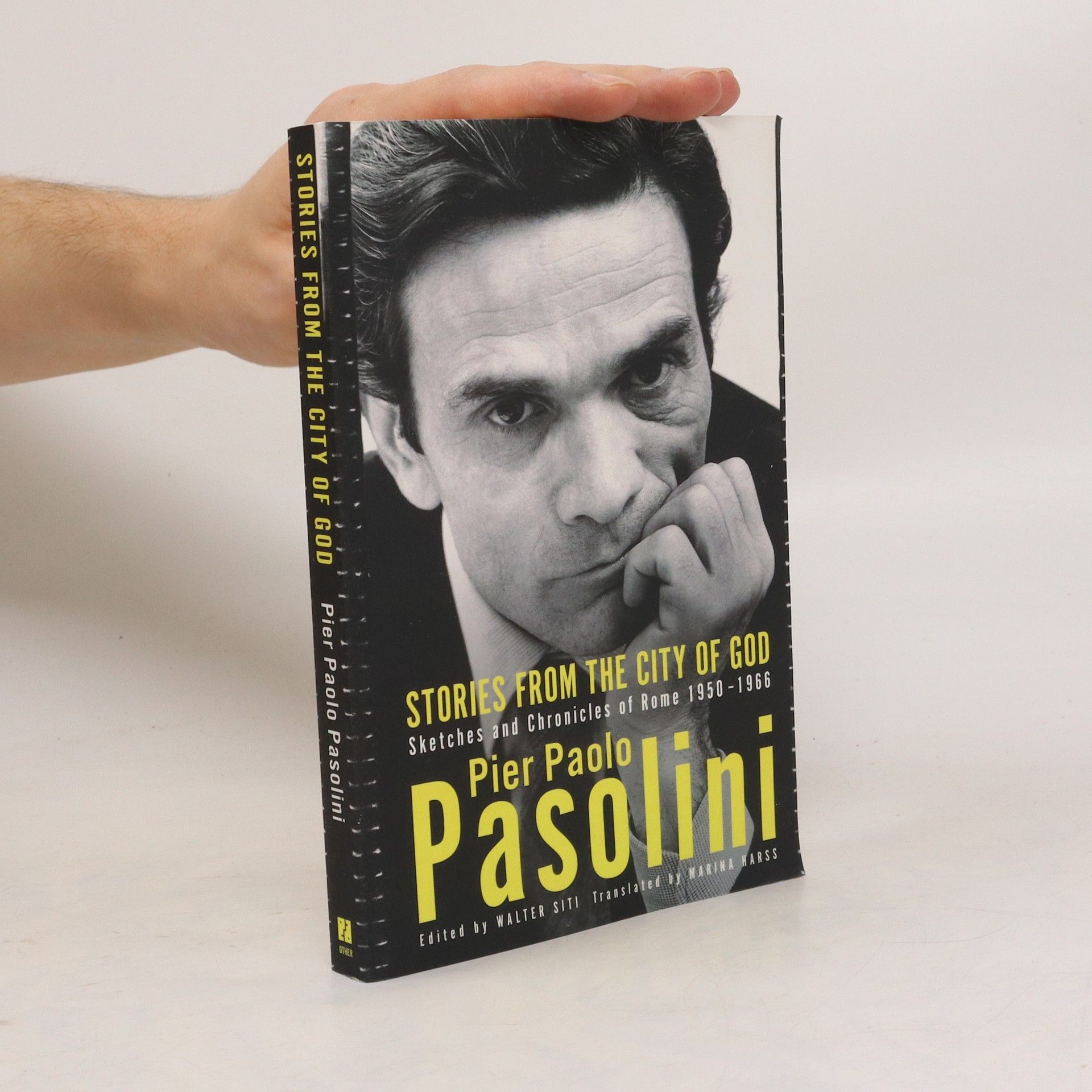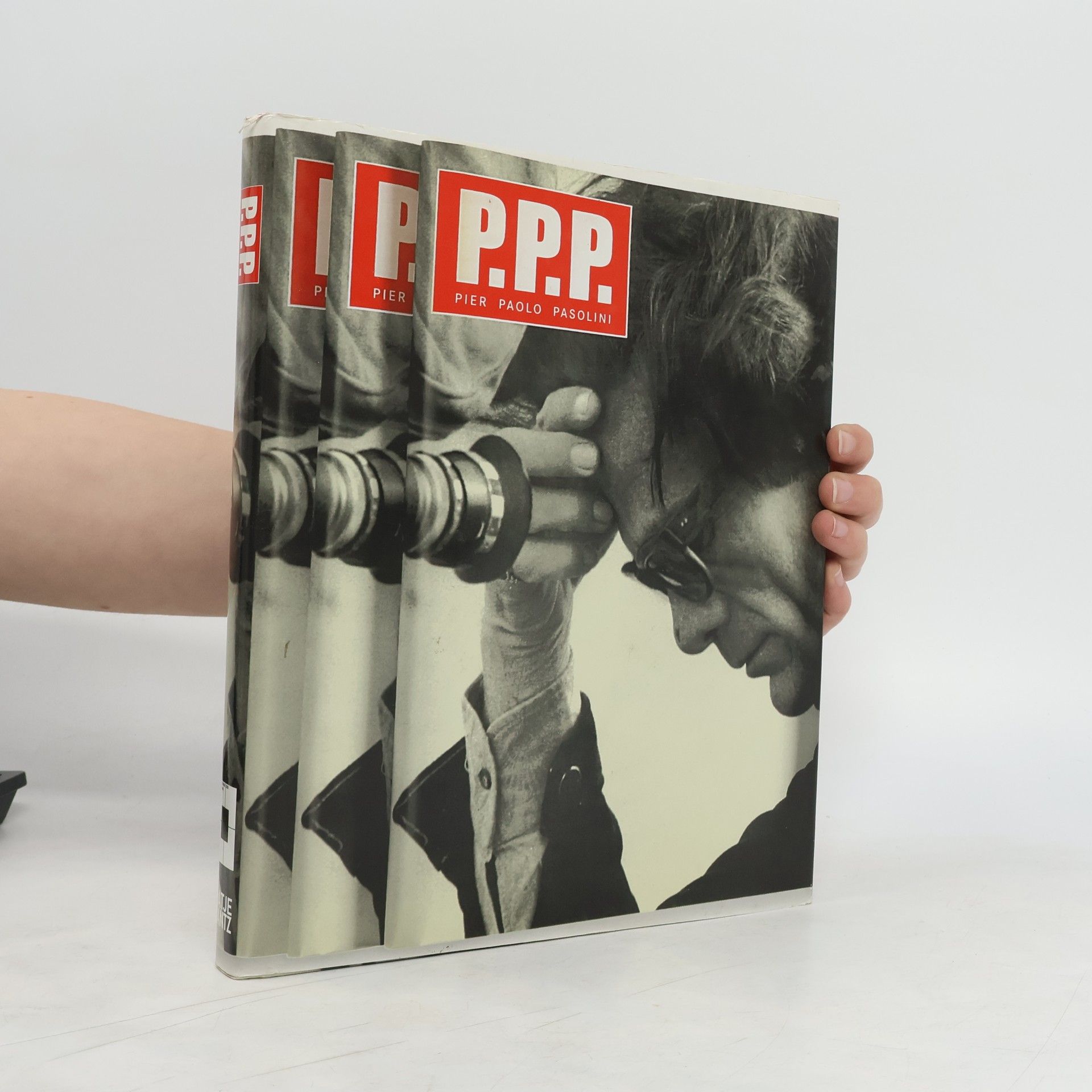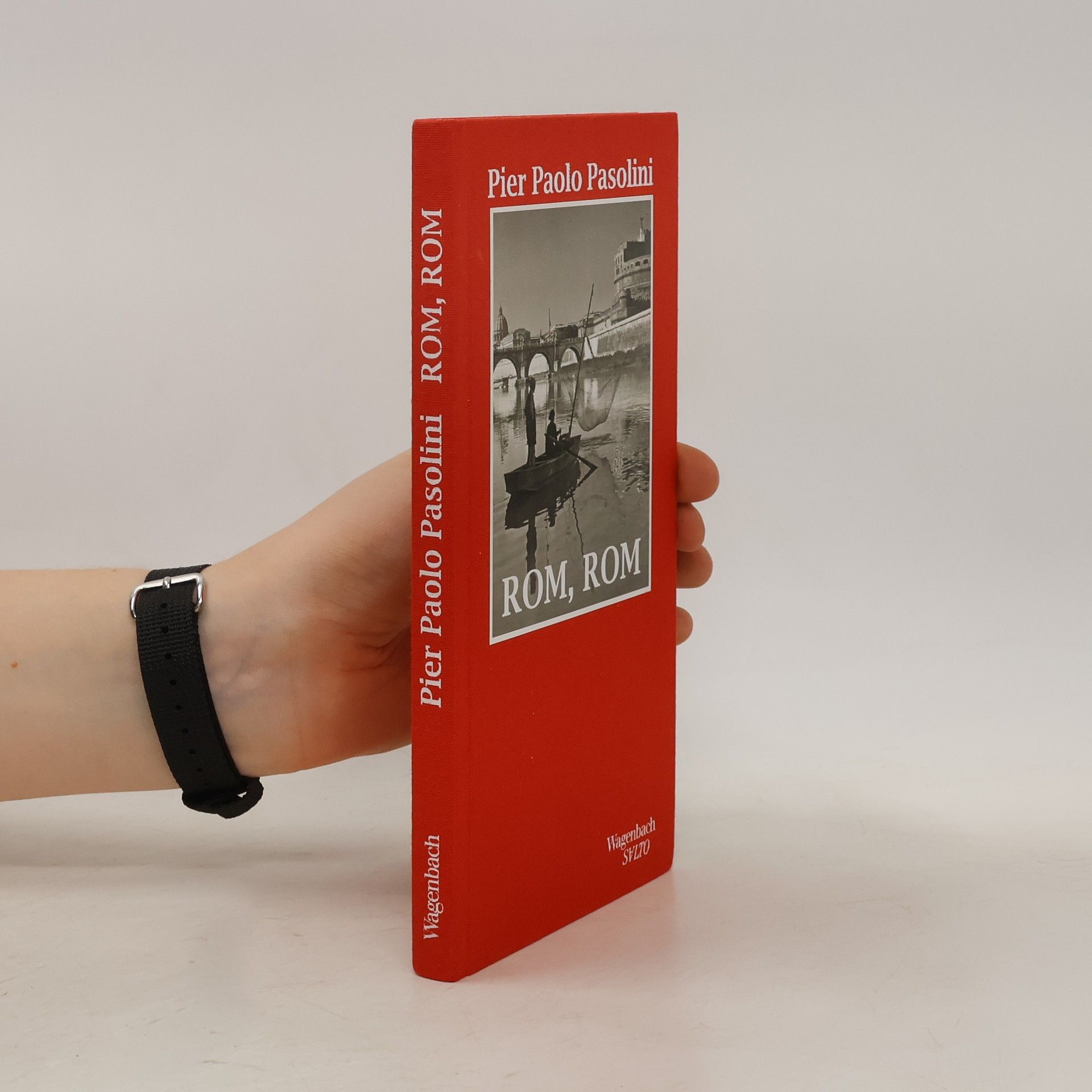Pier Paolo Pasolini ist einer der herausragenden und schillerndsten Protagonisten des intellektuellen Europa in der zweiten Hälfte des 20. Jahrhunderts. Als Autor von Gedichten in der Sprache seiner friaulischen Heimat, von Romanen und theoretischen Aufsätzen, als Regisseur Aufsehen erregender Filme, aber auch als Zeichner und Maler richtete sich sein Blick in erster Linie auf zeitlose, archaische Themen: das Schicksal des Menschen, das bäuerliche Leben, die Religion, die Sexualität, den Tod. Dabei bewegte er sich stets außerhalb jeder Normalität, fand Bilder von außergewöhnlicher Klarheit und Schärfe und wurde dabei zum größten Provokateur der italienischen Gesellschaft. Anlässlich seines 30. Todestages gibt der Band anhand seiner Schriften, Filme, Zeichnungen und Malerei Einblick in Pasolinis Wertvorstellungen und Ideale. Einen der Ausgangspunkte bildet die These, dass Pasolinis Kunstverständnis und seine Weltsicht schon früh die Idee eines gewaltsamen Todes in sich trugen, den er schließlich bewusst gesucht haben könnte, um durch ihn die Einheit von Leben und Werk herzustellen. (Deutsche Ausgabe erhältlich ISBN 3-7757-1632-7) Ausstellung: Pinakothek der Moderne, München 17.11.2005-5.2.2006
Pier Paolo Pasolini Boeken
Pier Paolo Pasolini was een Italiaanse dichter, romanschrijver, criticus en journalist wiens werk vaak schokkende beelden combineerde met een katholiek-marxistisch perspectief om de leegte van de moderne samenleving bloot te leggen. Hij stond bekend om zijn gepassioneerde kritiek op het kapitalisme en zijn verlangen naar maatschappelijke verandering, wat hem veel vijanden opleverde. Zijn geschriften, vaak provocerend en ambigu, speelden met taboeonderwerpen en verkenden de donkere kanten van het menselijk bestaan. Pasolini's proza wordt gekenmerkt door een sterk sociaal geweten en een meedogenloze zoektocht naar waarheid, hoe ongemakkelijk die ook mag zijn.







Stories From The City Of God
- 272bladzijden
- 10 uur lezen
Now in paperback, a collection of the legendary filmmaker's short fiction and nonfiction from 1950 to 1966, in which we see the machinations of the creative mind in post-World War II Rome. In a portrait of the city at once poignant and intimate, we find artistic witness to the customs, dialect, squalor, and beauty of the ancient imperial capital that has succumbed to modern warfare, marginalization, and mass culture. The sketches portray the impoverished masses that Pasolini calls "the sub-proletariat," those who live under Third World conditions and for whom simple pleasures, such as a blue sweater in a storefront window, are completely out of reach. Pasolini's art develops throughout the works collected here, from his early lyricism to tragicomic outlines for screenplays, and finally to the maturation of his Neo-realism in eight chronicles on the shantytowns of Rome. The pieces in this collection were all published in Italian journals and newspapers, and then later edited by Walter Siti in the original Italian edition.
This tale about seduction, obsession, family, and the confines of capitalism is one of director Pier Paolo Pasolini's most fascinating creations, based on his transcendent film of the same name. Theorem is the most enigmatic of Pier Paolo Pasolini’s four novels. The book started as a poem and took shape both as a work of fiction and a film, also called Theorem, released the same year. In short prose chapters interspersed with stark passages of poetry, Pasolini tells a story of transfiguration and trauma. To the suburban mansion of a prosperous Milanese businessman comes a mysterious and beautiful young man who invites himself to stay. From the beginning he exercises a strange fascination on the inhabitants of the house, and soon everyone, from the busy father to the frustrated mother, from the yearning daughter to the weak-willed son to the housemaid from the country, has fallen in love with him. Then, as mysteriously as he appeared, the infatuating young man departs. How will these people he has touched so deeply do without him? Is there a passage out of the spiritual desert of modern capitalism into a new awakening, both of the senses and of the soul? Only questions remain at the end of a book that is at once a bedroom comedy, a political novel, and a religious parable.
My Death My Life by Pier Paolo Pasolini imagines the Italian filmmaker and writer returning to the Roman homosexual hustlers he knew, in a "scathing commentary on false values in art" (The Hartford Courant).
A daring, once-censored novel about the harrowing lives of Rome's unhoused youth, written by one of Italy's greatest film directors, Pier Paolo Pasolini. Published in 1955, this was his first novel and remains his most renowned work of fiction. After a provincial sex scandal, Pasolini moved to Rome, where the city's vibrant dialect and postwar squalor profoundly influenced him. He realized that respectability was no longer an option, feeling akin to literary figures like Rimbaud and Wilde. Urgently seeking independence through teaching, acting, and journalism, he connected with outcasts who rejected bourgeois values, living intensely and carelessly. Despite the socialist climate of the time, Pasolini's narrative is devoid of sentimentalism regarding the underprivileged. Instead, he revels in the vitality of their squalor, crafting an urban inferno that is both hideous and dynamic. Lacking a grand plot, his narrative voice locks onto intense situations filled with conflict and comedy. The young characters, possessing nothing, fight to survive and seek enjoyment, viewing boredom as death. Money is acquired through looting and hustling, only to be squandered on clothes, drink, and gambling. Boasting and exhibitionism dominate their lives, with each boy aspiring to be the toughest on the block. As episodes unfold—a heist, gambling, or a search for sex—the reader anticipates disaster, with unpredictability at every turn. Tim Park
First collection on filmmaker and poet Pasolini's passion for painting
Román patrí medzi popredné diela neorealizmu. Hlavná postava Tomasso, žije v prostredí rímskeho podsvetia, špinavého predmestia rímskych nezamestnaných a len ťažko sa dostáva k uvedomelému a konštruktívnemu spôsobu života. Je rozhodnutý pracovať, žiť životom hodným človeka, ale nakoniec ho choroba privádza do hrobu.
Jede dieser Geschichten ist eine zärtliche Liebeserklärung an die Stadt Rom und ihre Bewohner, besonders an die benachteiligten unter ihnen, die in den Vorstädten leben und ins Zentrum kommen, um – unter Anwendung aller möglichen faulen Tricks – etwas Geld zu verdienen: als Röstkastanienverkäufer, als Fischhändler, als Kofferträger. Und um sich zu vergnügen, einen Kopfsprung vom Ponte Sisto in den Tiber zu wagen, für 150 Lire Boot zu fahren oder auch nur mit dem Oberleitungsbus auf der Via del Mare, während die Zeit verglüht im kalten Funken des Leitungsdrahts oder zu Staub zerrinnt in der kargen Landschaft am Stadtrand. Pier Paolo Pasolini schreibt einen anderen Baedeker Roms, denjenigen seiner Bewohner, der grausam und gefährlich sein kann – und dann wieder mild, im weichen Licht des Abends auf der Tiberinsel und am Ufer von Trastevere. Der junge Dichter bemächtigt sich der Stadt, ihrer Armut und ihrer Schönheit. Er erzählt uns, wie alles zusammenkommt – Lebensängste und Zukunftsträume, Überlebenstaktiken und Dolce Vita. Mit einer Biographie Pasolinis und zahlreichen Rom-Fotos der 1950er Jahre.
Pier Paolo Pasolini (1922 – 1975) je znám především jako režisér dnes již klasických filmů světové kinematografie Accattone, Evangelium svatého Matouše, Teoréma nebo kontroverzního snímku Salo aneb 120 dnů Sodomy. On sám se však pokládal hlavně za básníka a psaní veršů se věnoval průběžně po celý, bohužel předčasně ukončený život. Dosud byl český čtenář seznámen s jeho básnickou tvorbou jen fragmentárně, např. z Mikešova překladu sbírky z roku 1957 Gramsciho popel. Prvý rozsáhlý průřez jeho básnickým dílem přináší až tento svazek zahrnující ukázky ze všech jeho sbírek, včetně těch, které psal ve furlanském dialektu, jenž byl nářečím jeho milované matky (např. sbírka Básně v Caserse, 1942). Těžištěm tohoto dvojjazyčného souboru básní v překladech Alice Flemrové a Tomáše Matrase, který reprezentativní výbor rovněž uspořádal a doprovodil úvodní studií, je autobiografická a konfesijní kompozice Il poeta delle ceneri / Básník popela, v níž Pasolini odhaluje skryté pravdy o politické a ekonomické moci a o důvodném riziku rozpadu moderní a postmoderní společnosti. Svazek výtvarně obohacují grafické listy Giovanniho Battisty Piranesiho.



